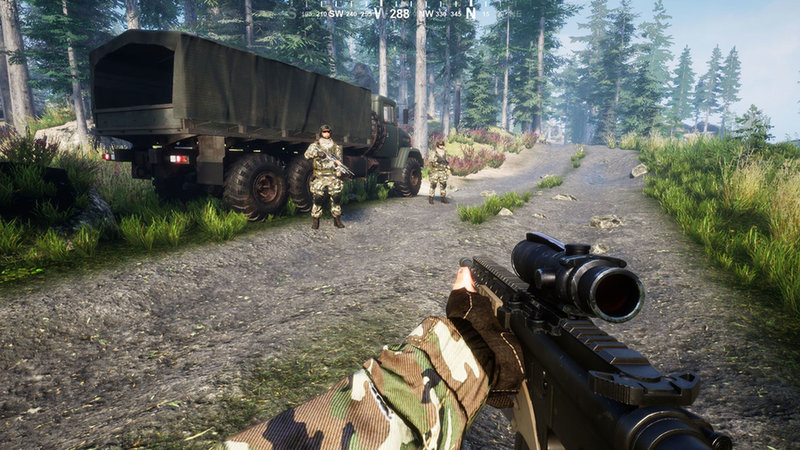air
Q&A | Training
Training and simulation: Improbable’s single synthetic environment
Following a contract award from the British Army, Improbable’s CEO for defence Joe Robinson tells Harry Lye about the company’s single synthetic environment and work with the UK Ministry of Defence.

Following a contract award from the British Army, Improbable’s CEO for defence Joe Robinson tells Harry Lye about the company’s single synthetic environment and work with the UK Ministry of Defence.
// Image: Improbable

Joe Robinson, CEO of Improbable’s defence business
// Harry Lye:
How did Improbable begin working with the Ministry of Defence (MOD)?
// Joe RObinson:
We have been working with the MOD for several years. Throughout that time, we have enjoyed a close working relationship where we have been able to jointly develop innovative simulation capabilities to support the MOD’s mission, including our current work on the single synthetic environment.
The MOD, like many other organisations in the field of defence and national security, is facing an increasingly complex world. Simulation and modelling is a vital tool for training and planning at the tactical through to the strategic level. However, simulations have traditionally been limited by their inability to integrate models and data from multiple sources to create a holistic, multi-domain simulation.
When Improbable began to develop its platform for multiplayer game development, it became clear that the cloud-based, distributed nature of the system had potential applications in creating large-scale simulations of the real world. This led to the creation of Improbable’s defence business, which works with the MOD and other customers to develop synthetic environments that will transform military training, planning and decision support.
What benefits does Improbable believe the army can gain through the use of its systems?
Our work with the Collective Training Transformation Programme (CTTP) represents a significant first step towards developing a fully operational single synthetic environment (SSE) that will enable individuals and teams to train in highly realistic, uniquely challenging circumstances. It is hoped that the SSE will provide soldiers with the means to train, plan and rehearse more effectively - to understand the cascading consequences of their actions - and, in doing so, help them to thrive in complexity.
This is a huge transformational opportunity, both for the capability defence departments need right now as well as their future requirements.
We see SSE as being the digital backbone for these organisations. An SSE can integrate and converge all technical capabilities into one system that meets a number of different collective and collaborative user needs.
Our work with the British Army is based around our customised and powerful synthetic environment platform, bringing together planning, training and decision support across the strategic, operational and tactical levels.
There are multiple benefits to this. First, the platform approach enables huge efficiency savings by bringing together content that exists in disparate departments. For example, it can be built by one branch of the government or armed forces, then shared and scaled to build an environment to prepare governments to model and train for a potential crisis affecting multiple areas of government, enabling them to rehearse, test and explore consequences and actions.
The platform also allows us to recreate a realistic environment for modelling purposes, by bringing together a number of different data points, such as data from social media, health data, population metrics, data from cell phone networks, and geographical data. Ultimately, it enables the secure and efficient testing of a number of experimental solutions, by running a variety of simulations and scenarios across this SSE.
The performance data that’s generated from these training and rehearsal sessions can subsequently be analysed and fed back into the operational planning process. This creates a feedback loop, improving planning and training in one fully integrated, scalable solution.

Capture from Improbable’s military simulation software. Image: Improbable
What does the future roadmap for work with MOD look like?
We recently announced our work on the British Army’s Collective Training Transformation Programme. This is initially a pathfinder contract, running from June 2020 to July 2021.
It’s a privilege to be contributing to this important and ambitious programme as it is an opportunity to make a lasting impact on the professional satisfaction, essential skills and collective fighting power of British soldiers. Through this project, we hope to show how a new generation of synthetic environments can provide the variety and flexibility the MOD needs in order to best prepare for the challenges of both current and future operations.
We have also collaborated with UK Strategic Command on another SSE technology demonstrator project, which is complementary to the Army training SSE.
We are looking forward to continuing to work with the MOD to develop a range of synthetic environments applications all powered by the same SE platform to enhance training, planning and decision support across Britain’s armed forces.
How is software designed for the games sector converted to work in the defence sector?
Improbable has worked since its founding in 2012 to make it easier for game developers to build virtual worlds. These games, such as the upcoming Scavengers from Improbable’s games studio Midwinter Entertainment, are effectively simulations, in which humans interact with a physically modelled world, often cooperating and competing with other humans and artificially intelligent entities.
Our defence business specialises in extending and enhancing the company’s multiplayer game technology and adding sector-specific expertise in defence, modelling, machine learning and other relevant technologies to create a powerful synthetic environment platform tailored to the needs of the defence community, to enable very large simulations for collective training in a highly realistic virtual environment or combining models and data in a scientifically rigorous way to support decision makers to explore the cascading consequences of their decisions.
By combining scientific modelling, artificial intelligence and data analytics, we have used our expertise in creating environments for multiplayer gaming and created a platform orientated towards the simulation of real-world environments.
We are committed to de-risking military simulation development and enabling the most realistic, most sophisticated synthetic environments ever conceived, which can accommodate larger numbers of users, so different forces and departments can train together in a seamless, integrated and rapid way. These multi-domain environments integrate data and models from the political, military, economic, social, information and infrastructure spheres.